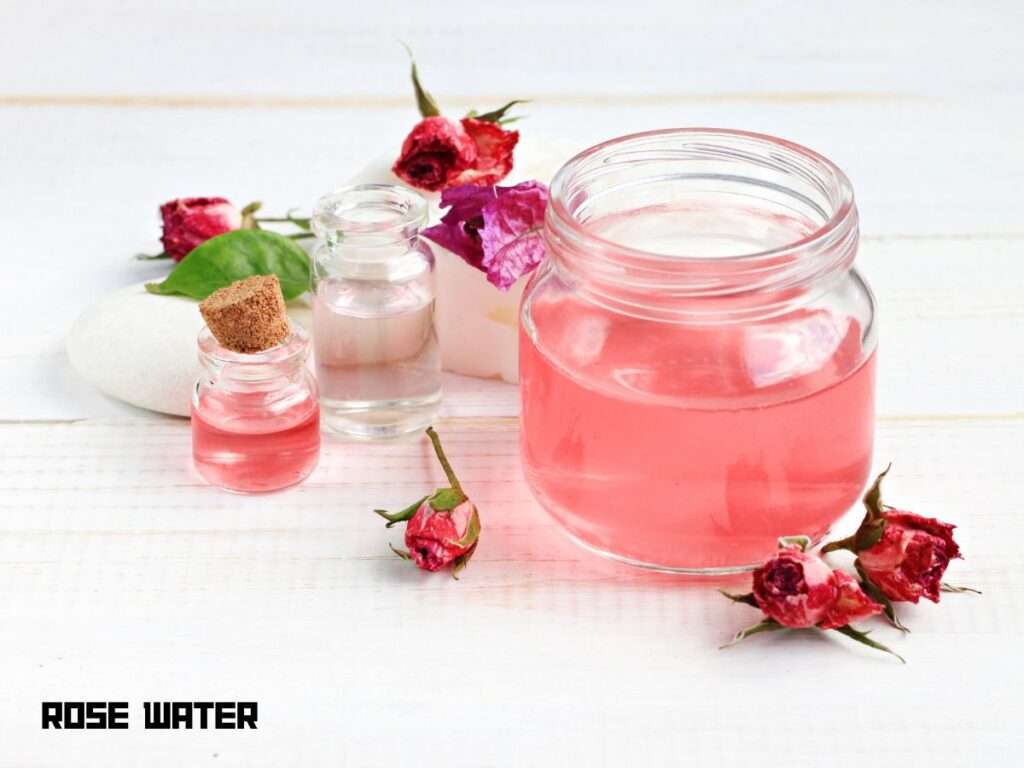Homemade Face Packs for Oily Skin You might be seeking for methods to reduce pain and inflammation if you have oily skin or acne. Making your own DIY face packs with natural components is a practical alternative. Managing oily skin can be difficult because there are so many problems to take care of, such as excess sebum, plugged pores, greasiness, and breakouts. Even while these issues may not be totally resolvable, there are simple homemade face-pack cures that can help reduce them using ingredients readily accessible in the kitchen. This article offers a variety of practical homemade face pack recipes, especially suited for oily and acne-prone skin. Therefore, you’ve come to the perfect site if you’re looking for DIY face packs for oily skin. See if any of these recipes might give you better, clearer skin by checking them out.
The Impact of Face Packs on Oily and Acne-Prone Skin
1.Lemon juice and honey
Making homemade face packs with honey and lemon might be a good idea if you have oily skin. Lemon contains astringent effects that are good for your skin, while honey has natural antimicrobial properties that can aid in treating acne. You may build a natural skincare routine that is efficient for oily skin by using these items into your DIY face packs. Consider adding honey and lemon to your DIY face packs if you’re seeking for ways to enhance the health and appearance of your skin.

You Will Require: A Step-by-Step Guide
- Honey, one teaspoon
- 12 teaspoons of reduced lemon juice
Method
- In a small mixing dish, combine both ingredients.
- Apply the mixture to your face, paying particular attention to the trouble spots.
- Give it 15 minutes to run.
- You should wash and pat dry your skin.
- 2-3 times per week, repeat.
Caution: Lemon juice causes photosensitivity, thus always use diluted lemon juice on your skin and use sunscreen after using this pack.
2.A face pack with aloe vera and turmeric
Aloe vera and turmeric may be useful ingredients to include in DIY face packs for oily skin. These two organic substances both have anti-inflammatory characteristics that can aid to lessen acne and improve the condition of the skin. You might be able to control oil production, avoid breakouts, and reduce irritation by applying an aloe vera and turmeric face pack. These two substances are a great option for those who like using natural solutions for their skincare routine because they are easily accessible, reasonably priced, and simple to utilise. As a result, to benefit from their anti-inflammatory characteristics, think about adding aloe vera and turmeric to a homemade face pack if you have oily skin.
You Will Need
- fresh aloe vera juice, 1 teaspoon
- 12 teaspoons of turmeric Method
- In a blender, combine the aloe vera juice.
- Put the turmeric in a mixing bowl after pouring it there.
- Put on the mask and leave it on for 15 to 20 minutes.
- Use water to wash it off, then pat your face dry.
- 2-3 times per week, repeat.
3.Rose water and Fuller’s Earth (Multani Mitti) Face Pack
Fuller’s earth has anti-inflammatory properties and helps to wash away excess oil and grime. This keeps the face clear and acne-free. Rosewater has a relaxing effect on the skin.
You Will Need
- Multani mitti, 1 teaspoon
- Rose water, 1 teaspoon (change the amount to your needs)
Method
- In a mixing basin, combine the rose water and Multani mitti.
- Apply it to your skin after adjusting the consistency.
- Prior to washing it off, let it dry.
- Two times a week, practise.

4.Honey and Turmeric Face Pack
Both honey and turmeric contain anti-inflammatory and anti-microbial qualities that are advantageous to the epidermis. Ayurvedic medicine makes considerable use of these substances due to their therapeutic qualities.
You Will Need
- Pure honey, 1 teaspoon
- turmeric powder, 12 tablespoons
Method
- Honey and turmeric should be mixed together in a bowl to form a paste.
- You can use the paste all over your skin or simply on the problem areas.
- Before rinsing it off, let it sit for 15-20 minutes.
- Three times a week should be set aside for this.
5.Honey and Oat Face Mask
Muesli is rich in antioxidants, has anti-inflammatory qualities, and can aid with a number of dermatological issues (5). Honey contains antibacterial qualities that keep your skin healthy and moisturised while preventing acne.
You Will Need
- a 1 teaspoon of powdered oatmeal
- Pure honey, two tablespoons
- 1 tablespoon rosewater, milk, or water for combining the ingredients
Method
- The elements should be combined in a bowl.
- It should be rubbed into your neck and cheeks.
- Set aside 15 to 20 minutes.
- Use warm water to wash it away.
- 2-3 times per week, repeat.
6.Fuller’s Earth (Multani Mitti) with Yoghurt Face Pack
You Will Need
- Fuller’s soil, 1 teaspoon
- 2 tablespoons Greek yoghurt
Method
- The elements should be combined in a bowl.
- If required, adjust the quantities until you obtain a paste-like consistency.
- This needs to be cleaned away.
- Two times a week, practise.
7.Honey and Cinnamon Face Mask
Staphylococcus aureus, which causes acne, is susceptible to the antibiotic chemicals found in cinnamon (both the oil and other extracts). In order to keep the skin clear and stop irritation, it works well with honey.
You Will Need
- 1 teaspoon of honey
- a sprinkling of cinnamon powder or one drop of cinnamon oil
- the two parts together.
- It can be applied as a spot treatment for zits and acne.
- Give it five to ten minutes to sit.
- This needs to be cleaned away.
- Repeat each day until the imperfections are gone.
- Skin irritation and redness may be brought on by cinnamon. Do not use if you have painful or sensitive skin.
Frequently Asked Questions
Q1: What homemade face masks are good for oily skin, question one?
A1: The following are seven at-home face masks for oily skin:
- Multani Mitti (Earth of Fulller) Pack: Create a paste by combining 2 spoonful of Multani Mitti with rose water. Apply it to your face, wait for it to dry, then wash it off with water.
- Mix 1 tablespoon of lemon juice with 1 tablespoon of honey to make a lemon and honey pack. After applying the mixture to your face, wait 15 minutes before rinsing it off with warm water.
- For a tomato and curd pack, one ripe tomato should be mixed with one tablespoon of curd. After applying this mixture on your face, wait 20 minutes before washing it off.
- To make a banana and honey pack, mash a ripe banana and add 1 tablespoon of honey to it. Apply the mask to your face, then wait 15 to 20 minutes before rinsing it off with water.
- For the “Cucumber and Aloe Vera Pack”, half a cucumber should be mixed with two teaspoons of aloe vera gel. Wash off the pack after 15-20 minutes of applying it on your face and neck.
- Gramme Flour and Turmeric Pack: Create a paste by combining 2 tablespoons of gramme flour (besan), a pinch of turmeric powder, and just enough rosewater. Apply it to your face, wait for it to dry, then rinse it off.
- Green tea and Apple Cider Vinegar Pack: Combine 2 tablespoons of brewed green tea with 1 tablespoon of apple cider vinegar. After 15 minutes, clean your skin after applying the mixture.
Q2:Can I apply these face packs daily?
A2: For oily skin, it is typically advised to use face packs two to three times a week. Daily use could result in excessive dryness or irritability. In order to preserve its natural balance, give your skin time to recover in between applications.
Q3:What amount of time should I wear the face packs?
A3: Depending on the components used, the amount of time the face packs should be left on can vary. The majority of face packs, however, can be left on for 15 to 20 minutes or until they are fully dry. For the greatest results, adhere to the directions provided with each unique pack.
Q4:Can sensitive skin use these face packs?
A4: Some of these face packs might be appropriate for skin that is sensitive, but it’s vital to exercise caution. Lemon juice and several essential oils are examples of ingredients that can irritate skin. It is advised that you conduct a patch test on a tiny patch of skin before using the pack on your face. Avoid using the pack if you suffer any redness, irritation, or discomfort.
Q5: Can these face packs be kept for further use?
A5: For best results, it’s recommended to make these face packs from scratch every time. Homemade face packs may degrade or lose their effectiveness if kept in storage for a long time because they frequently contain natural components without preservatives. Every time you intend to use them, it is advised to produce a fresh batch.
Q6: Is there anything specific I should watch out for when using these face packs?
A6: Yes, the following safety measures must be remembered :
- Avoid applying face packs on cuts or open wounds.
- Avoid applying face packs close to the eyes.
- Apply an oily skin-friendly moisturiser to the skin after rinsing the pack to avoid too drying it out.
Q7:Can I add extra components to these face packs to make them more individualised?
A7: You can alter these face packs in accordance with your requirements. However,



